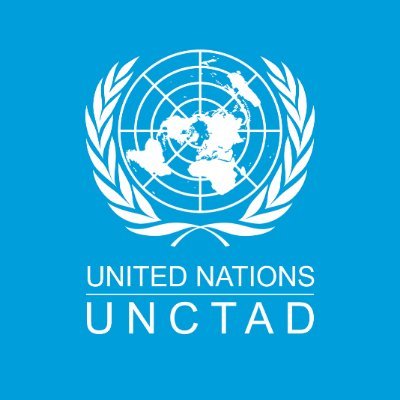The Productive Capacities Index measures countries’ capacity to achieve social and economic transformation and helps track their ability to achieve the Sustainable Development Goals.
UNCTAD has launched a new tool to help developing countries improve their development policies, reduce poverty and build economic resilience to negative shocks such as the coronavirus pandemic, which has devastated economies across the world.
The Productive Capacities Index (PCI) (https://pci.unctad.org?utm_so
“As countries fight the coronavirus crisis, their need to build economy-wide productive capacities for inclusive and sustainable growth is greater than ever,” said UNCTAD Secretary-General Mukhisa Kituyi while launching the tool.
UNCTAD defines productive capacities (https://unctad.org/webflyer/u
Productive capacities help countries avoid the trap of focusing on a few ingredients of production – such as machinery and equipment, physical infrastructure, human resource development, technological capabilities – as ‘magic bullets’ for economic growth and poverty reduction.
They equip countries to foster structural economic transformation, which, in turn, helps reduce poverty and accelerates progress towards achieving the SDGs.
Data from 193 countries, spanning 18 years
It draws attention to the strengths and weaknesses of countries’ past policies, processes and actions, then suggests a roadmap for future policy actions and interventions under each component.
The tool provides an overview of how far productive capacities have been developed or not in each country, enabling policymakers to trace their development performance over time, as well as compare it with other countries.
The index scores a country’s performance on productive capacities on a scale of 1 to 100, assessing the effectiveness of policies and strategies as well as existing gaps and limitations. It can help governments formulate and implement their policies better and benchmark their achievements.
A country’s overall level of productive capacities, as well as performance across the eight components of the PCI, are markers of its strengths, weaknesses and possible future growth patterns.
Not surprisingly, developed countries and industrialized economies are the top performers in aggregate PCI and category specific scores, except in natural capital.
In Asia, the highest-performing economies are Hong Kong (Province of China) at position eight in the PCI’s global ranking, followed by Korea and Singapore, ranked 11th and 13th respectively.
In Latin America, the best performers are Chile, ranked 50th globally, followed by Uruguay (53th) and Costa Rica (57th), while in the Caribbean, the top economies are Bermuda, ranked 16th globally, Barbados (40th) and Trinidad and Tobago (48th).
As a group, small island developing states rank relatively better than other developing countries due to their smaller sizes and populations, as the PCI uses indicators that utilize population-related or geographical ratios as units of measurement.
Africa’s leading performers are Mauritius, ranked 46th in the world, followed by South Africa (74th) and Tunisia (85th).
Many developing countries, particularly the world’s poorest nations and landlocked ones, lag in all components of the PCI, except natural capital, largely due to their overdependence on the export of primary commodities and limited production in a few sectors.
There are notable gaps in key aspects of productive capacities, including structural change, institutions, energy, ICT and human capital.
Building productive capacities
The PCI identifies key areas that developing countries should focus on to boost their productive capacities and achieve long-term, sustainable and inclusive growth.
Policymakers in these countries can use the tool to make evidence-based decisions about appropriate policies and strategies.
“The PCI is a practical guide and diagnostic tool to inform trade and development policy choices at the national level,” said Paul Akiwumi, director of UNCTAD’s division for Africa and least developed countries.
He said sectoral or thematic priorities for building productive capacities should be determined by each country’s national development strategy and country-specific conditions.
“There is no universal blueprint to foster the development of productive capacities and structural economic transformation,” Mr. Akiwumi said. “Policies should be homegrown and based on country-specific constraints, opportunities and comparative advantages.”
He called for concerted efforts to support countries in developing and building new productive capacities and utilizing their existing ones fully.









